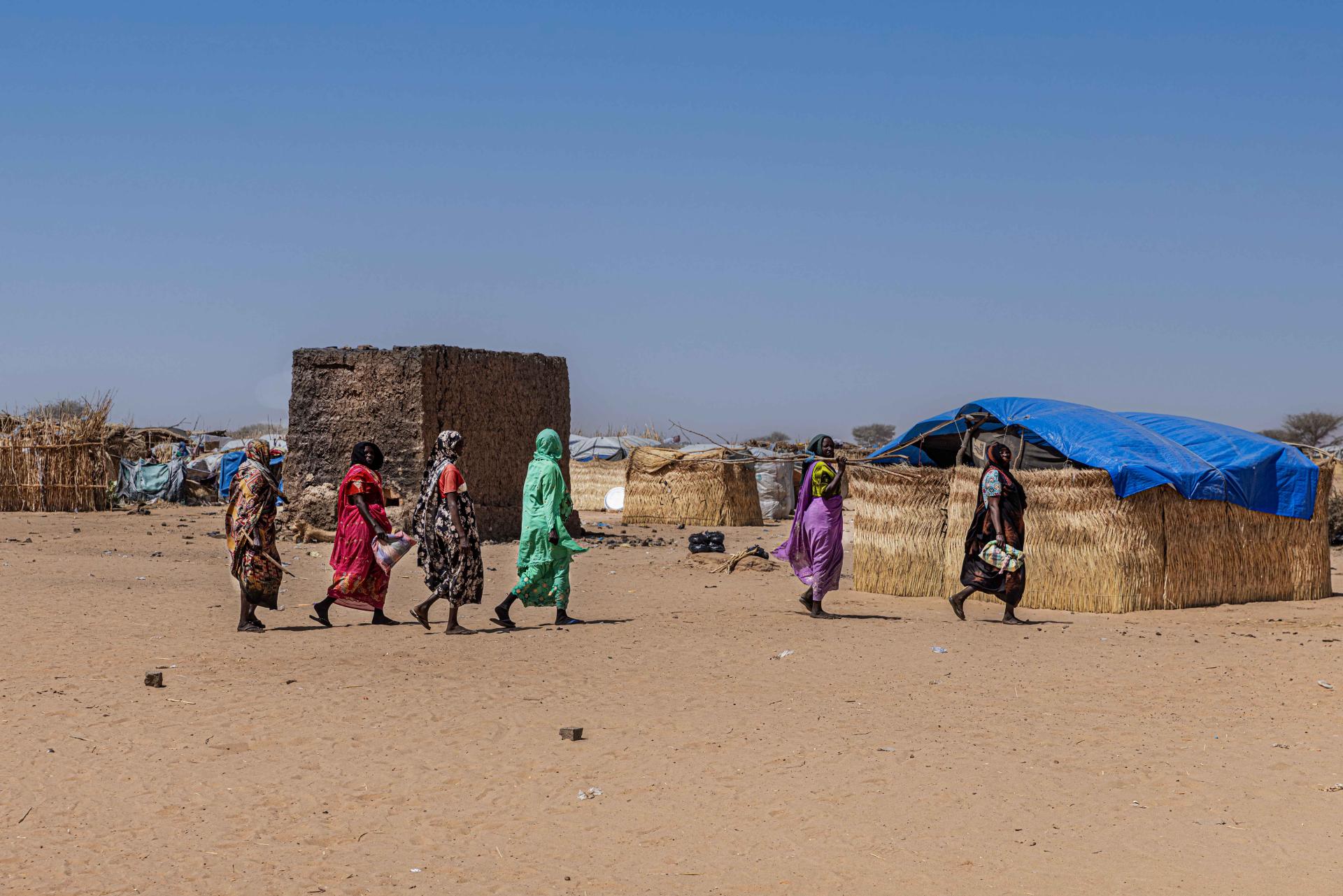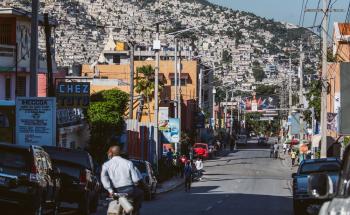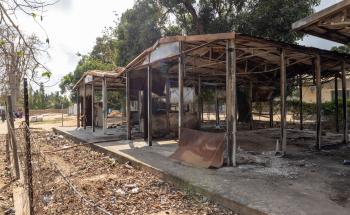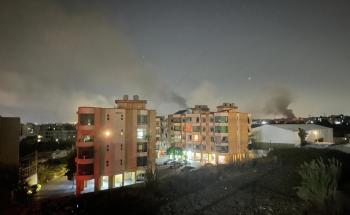The brutal war in Sudan has forced millions of people to leave their homes to escape the fighting, while countless others have been killed or severely injured. Some have managed to cross the border into neighbouring Adre, Chad, where MSF is providing medical care to the refugees. MSF surgeon Mahamat Zibert Hissein is from Chad and has been caring for the refugees in Adre. He shares the story of one.
This is the story of *Mariam Ali, a mother of two. Mariam is from Sudan but had to flee the war there. She was shot as she escaped the violence, the bullet fracturing a bone in her leg. She was seven months pregnant.
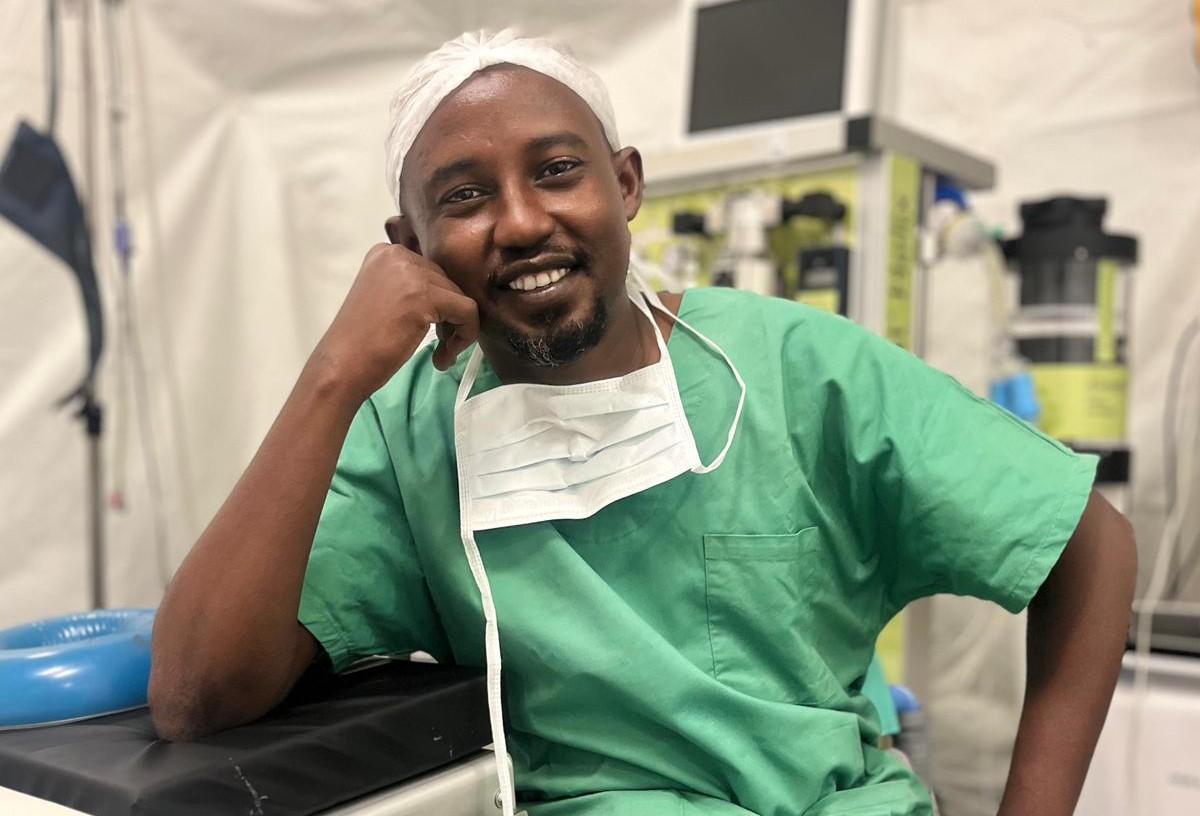
I’m a surgeon, and was working at the MSF hospital Adre in Chad when Mariam arrived. Adre is a border town, only 400m away from neighbouring Sudan. Since the war began in May 2023, over 600,000 people have crossed the border, seeking refuge in Adre and the surrounding area.
Many who arrive are in desperate need of medical care, including surgery. To make this possible, MSF has set up an inflatable hospital.
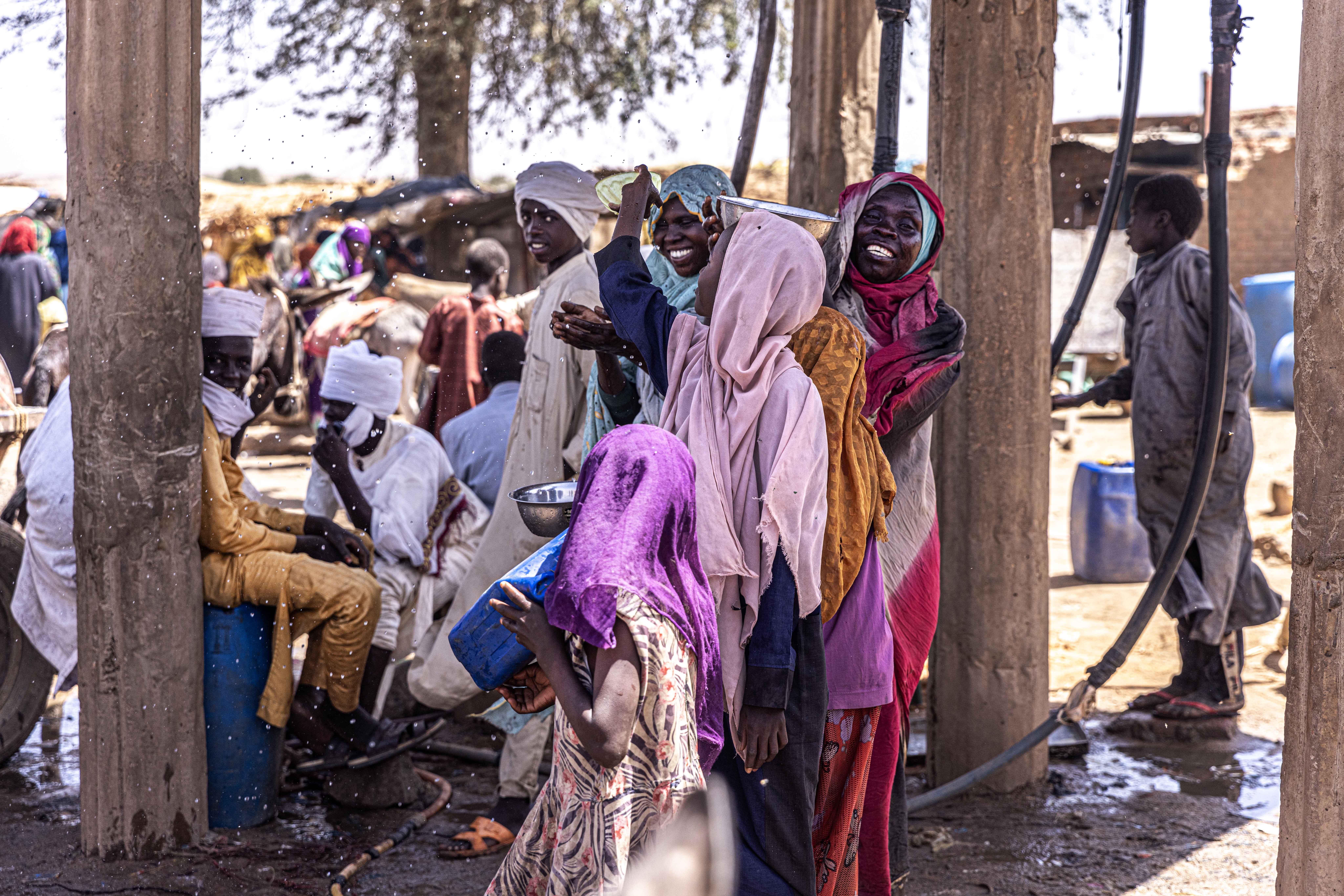
The hospital is an innovative system of tents with an inflatable framework, all made of durable, weatherproof materials. It can be erected anywhere in the world to quickly create a full surgical unit with two operating theatres and a recovery room.
Among other services, in Adre we provide general emergency surgery, surgery for orthopaedic cases, and follow-up with physiotherapy.
It was clear that Mariam’s leg needed surgery and an external fixator: a stabilising frame which holds broken bones in position while they heal.
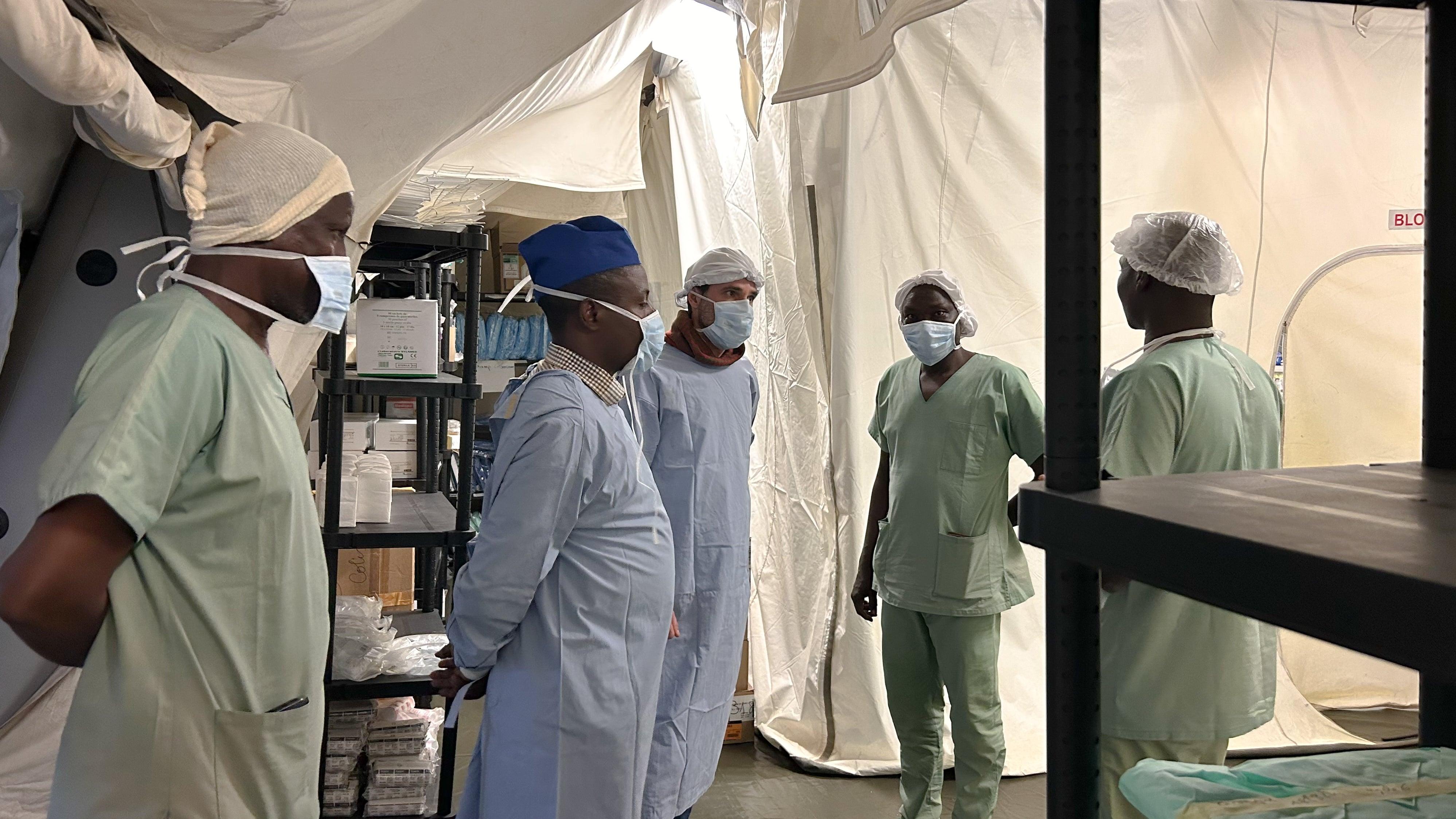
To place the fixator, screws must be inserted into the bone above and below the fracture. These pins extend through the skin, and the fixation device is then attached to the screws externally.
When I examined Mariam’s injury, I could see that the bullet had fractured the lower third of her tibia, close to the joint. This would make it tricky to place the device.
Once in the operating theatre, we assessed the options. The priority was to preserve the function of Mariam’s leg as much as possible. Life in the refugee camps is difficult enough for able-bodied people. I knew that living with a disability would make things even tougher for Mariam and her children.
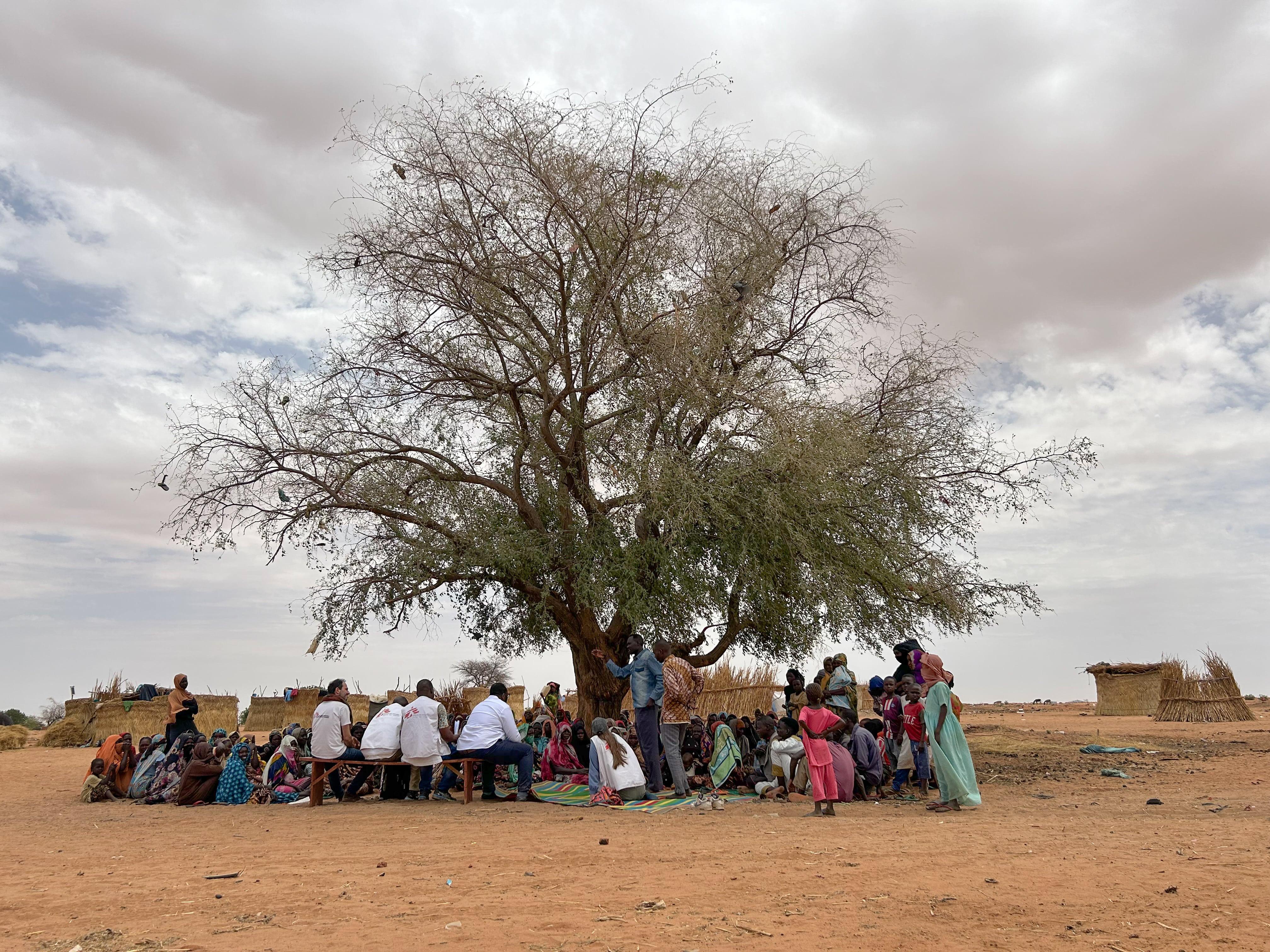
Thankfully, we were able to place the fixator successfully. I was pleased, and when she recovered from the anaesthetic, I asked her to be very careful and to take good care of her leg. I knew this wouldn’t be easy – most refugees live in tents or makeshift shelters without beds or mattresses.
But Mariam was determined. She came back regularly for dressings, which helped the wound heal properly. She always kept her spirits up and smiled.
Every time I went into the tents, she would smile and say: "Hey, Dr Zibert, if my leg was healed, I'd cook the team a grilled chicken".
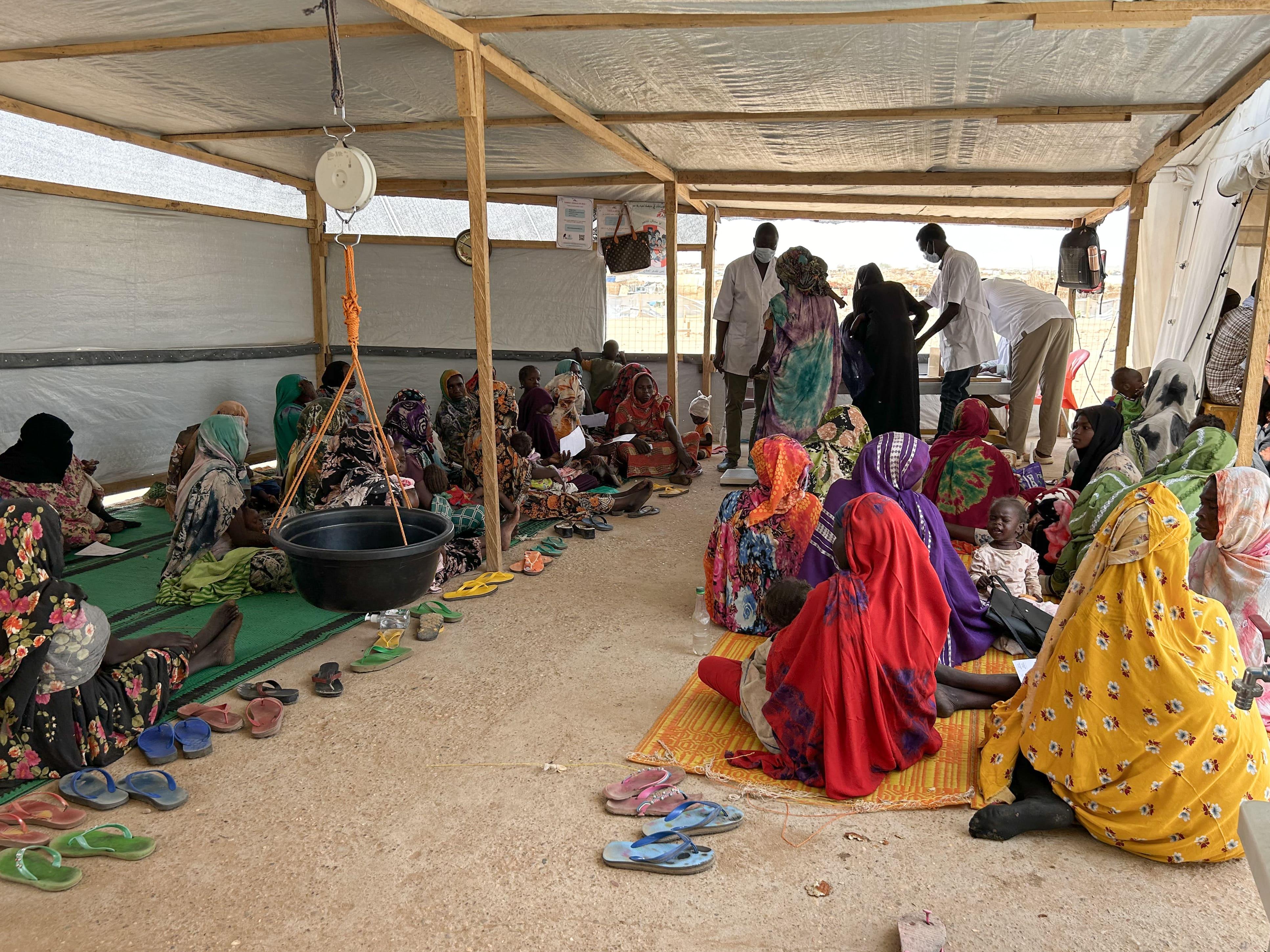
The fixator was recently removed, and Mariam started working with the physiotherapy team. Soon, she was walking again.
Finally, the day arrived when Mariam was ready to leave the hospital. That day, she thanked us profusely and reminded us of her promise to cook us a chicken one day. Refugees in Adre are currently surviving on very limited food, so her hope that things would improve and her generous spirit made a real impression on me.
Despite the incredibly difficult circumstances refugees like Mariam are living through, it was an immense joy to see a mother of two, pregnant with her third child, leave the hospital healed and able to return to her young family.
